Description
Authors and Chapters
Preface by Yao Ydo, Director of UNESCO International Bureau of Education
Introduction. Ayé Clarisse Hager-M’Boua & Fabrice Jaumont
I. LANGUAGE AND CULTURAL IDENTITY
1. Creating space for students’ linguistic and cultural heritage in the French classroom: The example of the FHLP in the United States. Agnès Ndiaye Tounkara
2. Assets and advantages of bilingualism: The acquisition of French as a foreign language. Ayé C. Hager-M’Boua, Ama E. Flora M’Baye & Pascaline A. Kouamé
3. Bilingual revolution in sub-Saharan Africa. Particularities, scope, limits and perspectives. Mbacké Diagne
4. Mother, teach me: On the importance and possibility of decolonial multilingual education through African mother tongues. Djeneba D. Bagayoko
II. BI-CULTURALISM: AFRICAN CULTURE AND EUROPEAN CULTURE
5. The place of heritage languages in the Cameroonian and Ontario school systems: the current state and a prospective view. Carole Fleuret & Julia E. Ndibnu-Messina
6. Our languages in school, that’s like a bar of African gold’: Parents’ and teachers’ visions for multilingual education in Côte d’Ivoire. Michelle L. Solorio
7. Translanguaging in indigenous Kenyan languages: Include all learners no silencing. Brenda A. Wawire.
8. Improving the quality of education in Africa using African languages for teaching. Maria J. Aaron
III. MULTILINGUALISM / LANGUAGE EQUITY
9. The urgent need for reorientation with regards to multilingual education advocacy in Africa. Daniel N. Obah
10. Multilingual teachers for the multilingual classroom. Pierre de Galbert & Cornelius Wambi Gulere
11. Multilingual glossaries for teaching and learning: an initiative at the University of South Africa. Feziwe Shoba & Koliswa Moropa
12. Multilingual education for improved foreign language acquisition: The importance of using students’ native languages for learning foreign languages. Tony V. Muzau
IV. BILINGUAL EDUCATION: MOTHER TONGUE / FRENCH; MOTHER TONGUE / ENGLISH
13. The need for bilingual education for the promotion of regional integration of communities in the eastern part of the Democratic Republic of Congo. Félicien M. Maisha
14. Tips from the hen: Bilingual school as a social project. Thomas Bearth et al.
15. The power of multiliteracy in The Gambia and Ghana. Ari Sherris & Joy K. Peyton
16. The challenges and relevance of tone didactics. Venance Tokpa
17. Fulfulde-French bilingual education: Advantages and solutions to the difficulties encountered. Djibrila Tetereou
Conclusion Ayé Clarisse Hager-M’Boua & Fabrice Jaumont
About the editors
Ayé Clarisse Hager-M’Boua is a linguist and a teacher-researcher in the Department of Language Sciences & Communication at Alassane Ouattara University in the Republic of Côte d’Ivoire. Fabrice Jaumont is a French-born author and educator best known for his advocacy for dual-language bilingual education around the world. He is the author of several books translated in multiple languages.
Praises
The International Organization of La Francophonie (OIF) has been involved in bilingual education for more than 20 years, notably with its “École et Langues Nationales en Afrique” (ELAN), in English “School and National Languages in Africa” program which involves more than 7 million students. This book illustrates the strength of this approach in different linguistic contexts, particularly in French-speaking Africa where multilingualism is a daily reality in which the French language contributes to the dynamic synergy for the development of quality education and the promotion of cultural and linguistic diversity. Two pillars of sustainable development and peace.
- Zahra Kamil Ali, Permanent Representative of the International Organization of La Francophonie for the Americas.
This book is a welcome addition to the Bilingual Revolution series. It problematizes how the robust individual multilingualism so prevalent throughout the African continent often conflicts with the monolingual language ideologies that form the basis of most educational practices. The various chapters emphatically and convincingly argue for prioritizing the lived experiences of multilingual students and for valorizing their impressive linguistic repertoires in academic settings and in society in general. These case studies not only elucidate important phenomena in various African countries, but also offer valuable models to the rest of the world.
- Maya Angela Smith, Associate Professor, University of Washington, Seattle, WA, USA. Author of Senegal Abroad (2019) and Sénégalais de l’étranger (2022)
This book not only stands out as a call for promoting bi/multilingualism in education but also offers great insights into the importance of languages in the education we offer our children. The chapters in the book provide evidence that children underperform in schools not because they do not have the ability to learn, but because they struggle with the languages used in school. The numerous case studies presented in the book emphasize the success of code-switching, particularly in early grades, for quality teaching and learning. The book serves as a reminder that languages are vehicles for culture, and if we do not include the learners’ languages in the code-switching education we offer them, then we are dismissing their culture, treating it as non-existent. In addition, the book presents great examples of how multilingualism is used in different contexts where Africa’s many languages co-exist with the colonial languages that dominate education systems. It is my hope that policymakers will take note and use this information to inform and shape policies that promote, encourage, and provide space for bi/multilingualism in their education systems.
- Teboho Moja, Professor, New York University, USA and University of the Western Cape, South Africa
A Bilingual Revolution for Africa is a groundbreaking book that delves into the fundamental role of language in shaping our social world and our sense of identity. The authors expertly demonstrate the innate ability of human beings to learn language and the crucial role that the native or first language plays in child development, particularly in multilingual environments such as Africa. They highlight the link between our thoughts and the use of our native language and show how the historical and cultural knowledge and know-how of different communities shape the way in which individuals understand and interpret the world around them. The book also offers a fresh perspective on the importance of education programs, language policies, and multilingualism, and provides a blueprint for creating more inclusive and empowering educational environments that promote multilingualism as a valuable asset. A must-read for anyone interested in the power of language and its impact on human development.
- Jane Ross, International Educator and Author of Two Centuries of French Education in New York (2020) and Deux siècles d’éducation française à New York (2022).
This series of essays on the integration of indigenous languages and cultures into teaching in sub-Saharan Africa constitutes an excellent starting point for educators, researchers and policy makers reflecting on how applications and models of mother tongue and dual-language education can be applied to linguistically diverse African education contexts. A Bilingual Revolution for Africa, while contributing insights into multilingual education in sub-Saharan Africa, embraces the diverse and complex ways in which such an education approach actually unfolds. The authors, often actively involved in delivering the multilingual education solutions at the core of this book, provide yet further evidence of the importance of embedding African languages in education. In particular, they underline the role multilingual education in sub-Saharan Africa can play in fostering inclusiveness in education, sustaining and/or promoting access to knowledge, and more broadly enabling greater social justice and economic growth at societal level. The rich account of the ways indigenous languages can be integrated in education systems also pointedly reveals that multilingual education approaches in Africa reflect the multilingualism in most homes. This aptly reminds us that such education approaches are best understood as attempts to bring what goes on ‘outside’ of classroom daily—for example, in the playground, the market, the streets, and the home—inside.
- Clyde Ancarno, Senior Lecturer in Applied Linguistics, King’s College London, UK
The evidence in favor of mother tongue-based multilingual education is not new, yet such education is the exception rather than the norm in far too many places in Africa. A Bilingual Revolution for Africa makes the case for education that incorporates the use of the mother tongue, but it does more than just advocate for this approach. The articles in this volume address, first of all, why “first language first” education is important. Some resistance to bi-/multilingual education is due to a lack of understanding of its importance and value. But the authors do not stop with why, they also address the how: “I’m convinced, but how do you go about it?” Some just do not think it can be done, and the how facet of this book gives them hope that it can be done. There is attention to policy, to practice, to materials, teacher training, and deployment. There are a host of practical issues that must be dealt with. Many of the articles also address context. Not all situations are equal, and the peculiarities of each situation must be recognized, and principles gleaned that can be applied in other places. The Gambia, Côte d’Ivoire, Cameroon, Kenya, and South Africa all provide case studies that ground the theory in the reality of specific countries. Finally, I think it is important that most of the voices in this book are African. There is a tremendous amount of skill, experience, wisdom, and insight within Africa on this issue, and it is only right that Africans speak to Africans about this most important issue of how their children can best learn.
- Paul S. Frank, Senior Advisor, SILLEAD, Dallas, TX, USA
It is ironic that bilingual education can be deemed revolutionary for Africa, where individual multilingualism is the norm. But in African schools, monolingualism has been not only usual but revered as policy, if not practice. This book shining light on exceptions to that pattern is very welcome as African educators struggle to shake off the weight of school language policy and practices rooted in colonialism and persisting stubbornly to this day. The chapters outline arguments for the new multilingualism at school that are rooted in different countries’ realities; and they present profiles in practical terms—how curriculum and learning materials entail and support bilingualism, how teachers and administrators use multiple languages naturally in their work with each other and their students, how challenges can be confronted and overcome, what parents believe about mother-tongue education, and more. Readers who are well-versed in approaches to multilingual education for African students will appreciate the broad view this book provides in terms of languages and countries, as well as approaches to modifying and remedying the language policies of the past. The authors make the point that mother-tongue-based bilingual education is not a frill. It is essential to improving education: improving systems, improving teaching and learning, improving the relevance of schools and schooling to social cohesion and national development. And it is disruptive: It is key to ending under-performing or failed praxis. This is the sense in which bilingual education in Africa is revolutionary. The revolution is justified in these chapters by references to the partiality of teaching and learning in officially monolingual classrooms where children comprehend discussions, texts, and tests only partially and teachers understand teacher guides and curricula only partially because they are not proficient in the language of school. The result is partial success where children pass on to the next grade with partial academic knowledge and skills, passively memorizing facts, but being unable to develop deep understanding. In schools that use students’ own languages as they acquire others, high quality instruction can support integration of new knowledge with what learners already know. The chapters in this book—many of them written by African researchers and educators with a stake in improving education in their own countries–show what that looks like in reality.
- Carolyn Adger, Senior Fellow, Center for Applied Linguistics, Washington, DC, USA



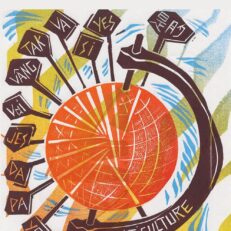
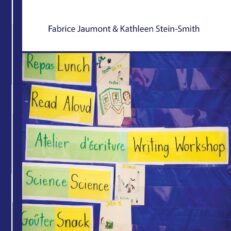


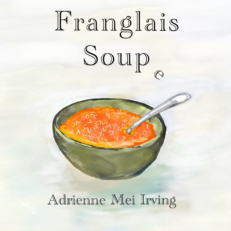
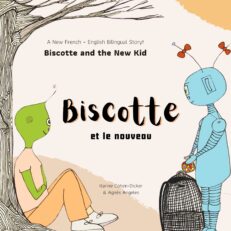
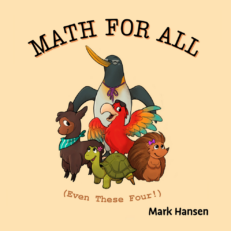

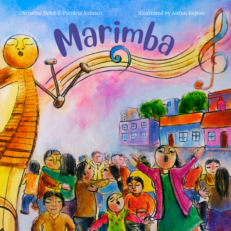
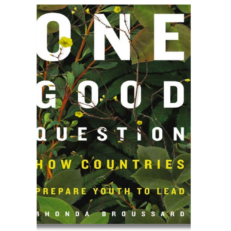


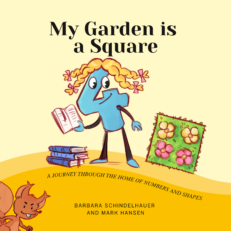
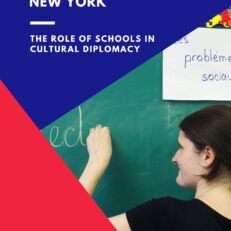
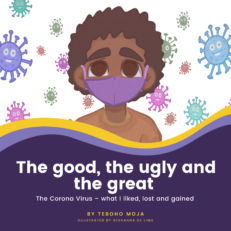
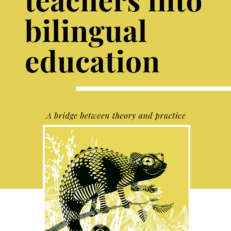

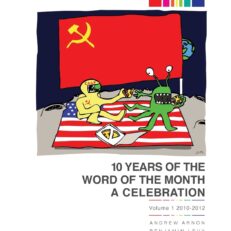
Reviews
There are no reviews yet.